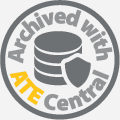Creation and Modernization of Technological Education in Electronics and Welding through Open Educational Resources that are Free to Share, Use, and Revise
This project is designed to modernize technical education in Electronics and Welding by developing and sharing openly licensed course materials. These materials, known as Open Educational Resources (OER), can be retained, reused, redistributed, revised, or remixed without permission from their creator. As a result, their content is dynamic and free of cost. Although OER are common for general education, the highly technical fields of manufacturing technology have not widely transitioned to use of OER. This project plans to create OER for education in Welding Technology and Electronics Technology. OER reduces barriers to education by reducing costs and ensuring course materials are available immediately. In addition, instructors can easily adapt materials to make meaningful connections to diverse student experiences and interests. It is expected that the project will broaden participation in manufacturing technology programs by including more women, veterans, people with disabilities, adult learners, and people from communities that are underrepresented in STEM technical fields. In doing so, the project will directly serve the national interest in developing and maintaining a diverse skilled technical workforce.
The project objectives are to: 1) create or adapt and incorporate digitally accessible OER, including student learning assessments, for six courses, allowing hybrid and online delivery; 2) train faculty in OER, accessibility, the online environment, and instructional design; and 3) engage industry partners to collaborate with faculty in reviewing and modifying course materials for content and accessibility and to provide industry experience for students through internships. External evaluators will provide ongoing review of activities and a summative evaluation. Project deliverables will be disseminated through OER repositories for use worldwide. The instructional changes, faculty professional development, and collaboration with industry partners are designed to prepare a more diverse, better trained technician workforce ready to meet critical regional needs.
About

Comments